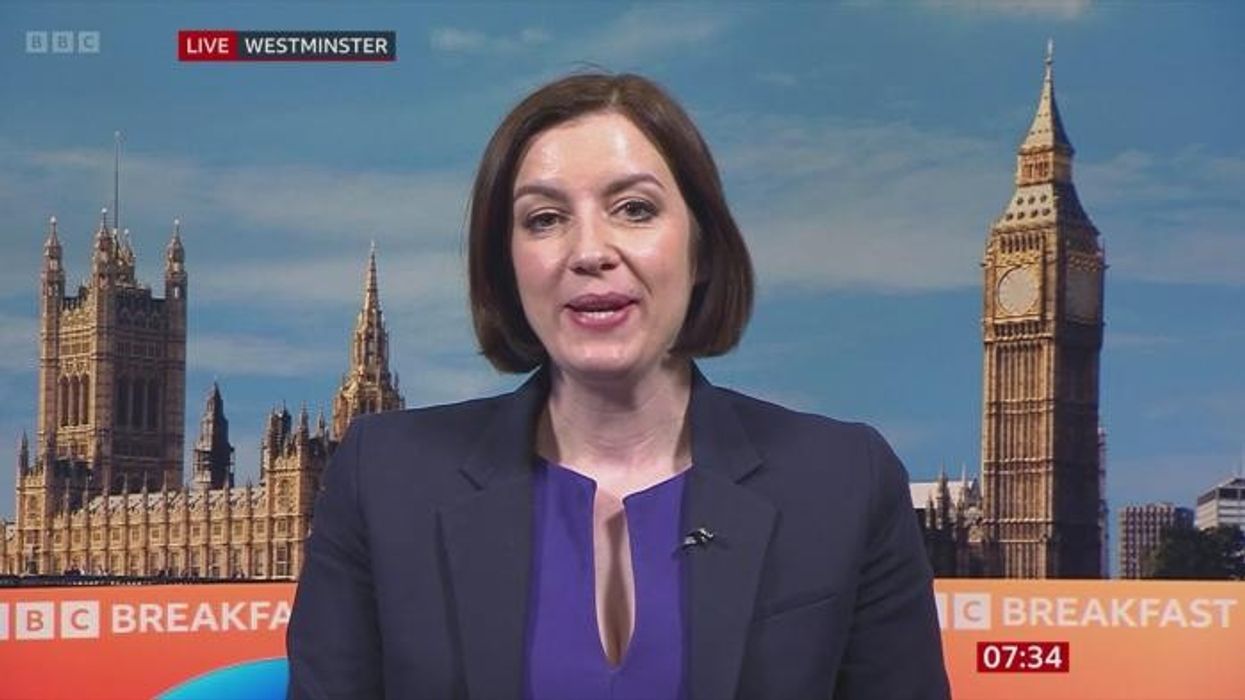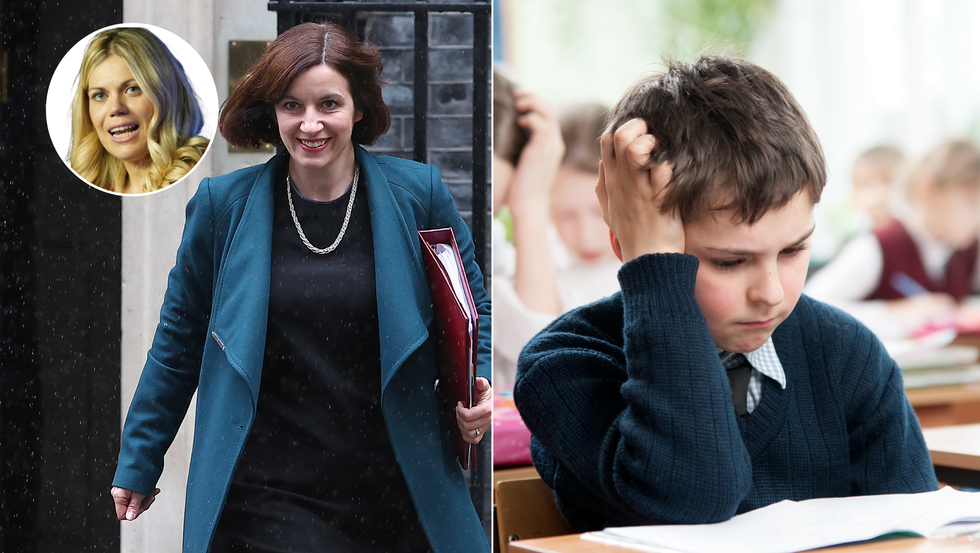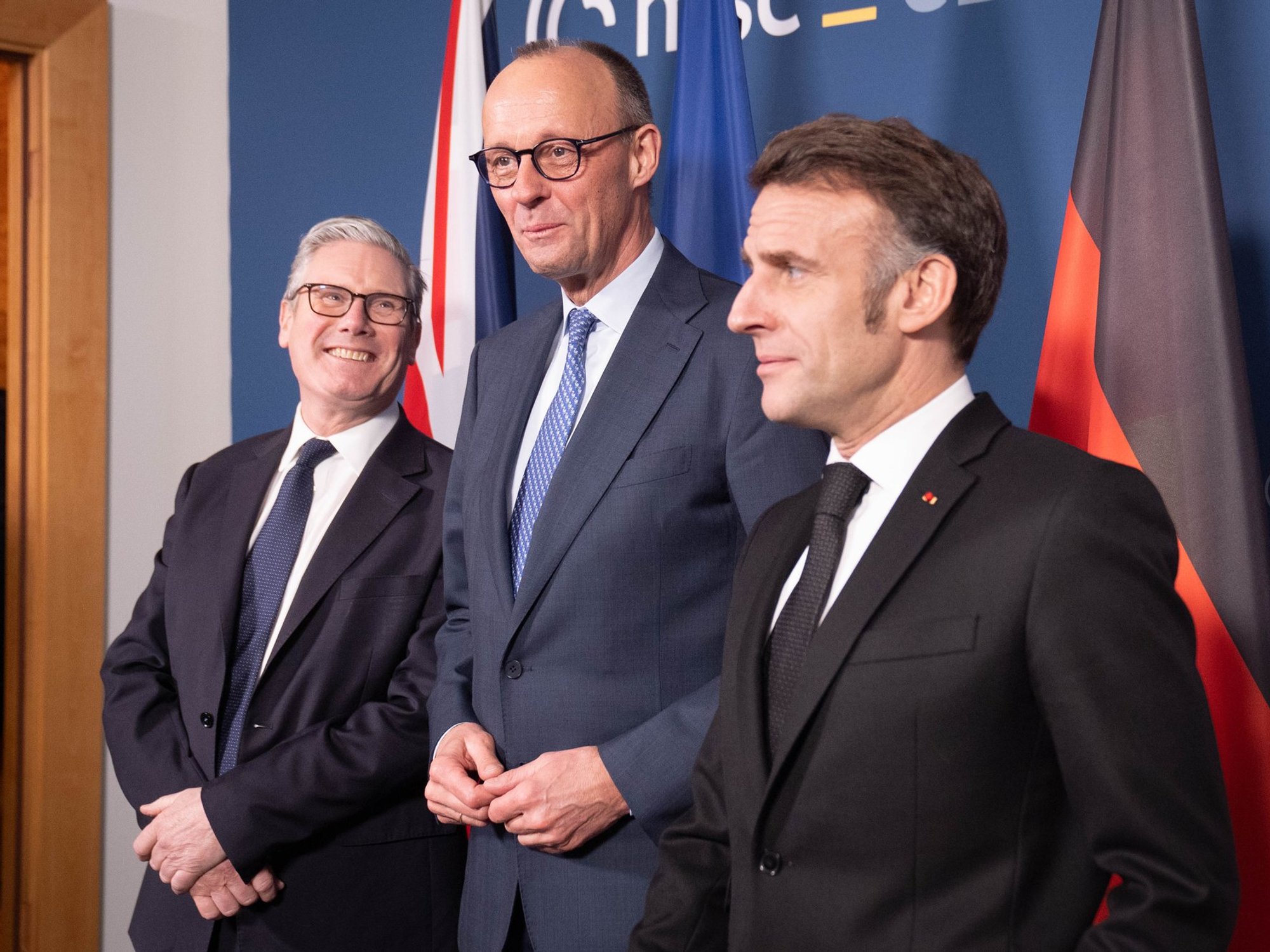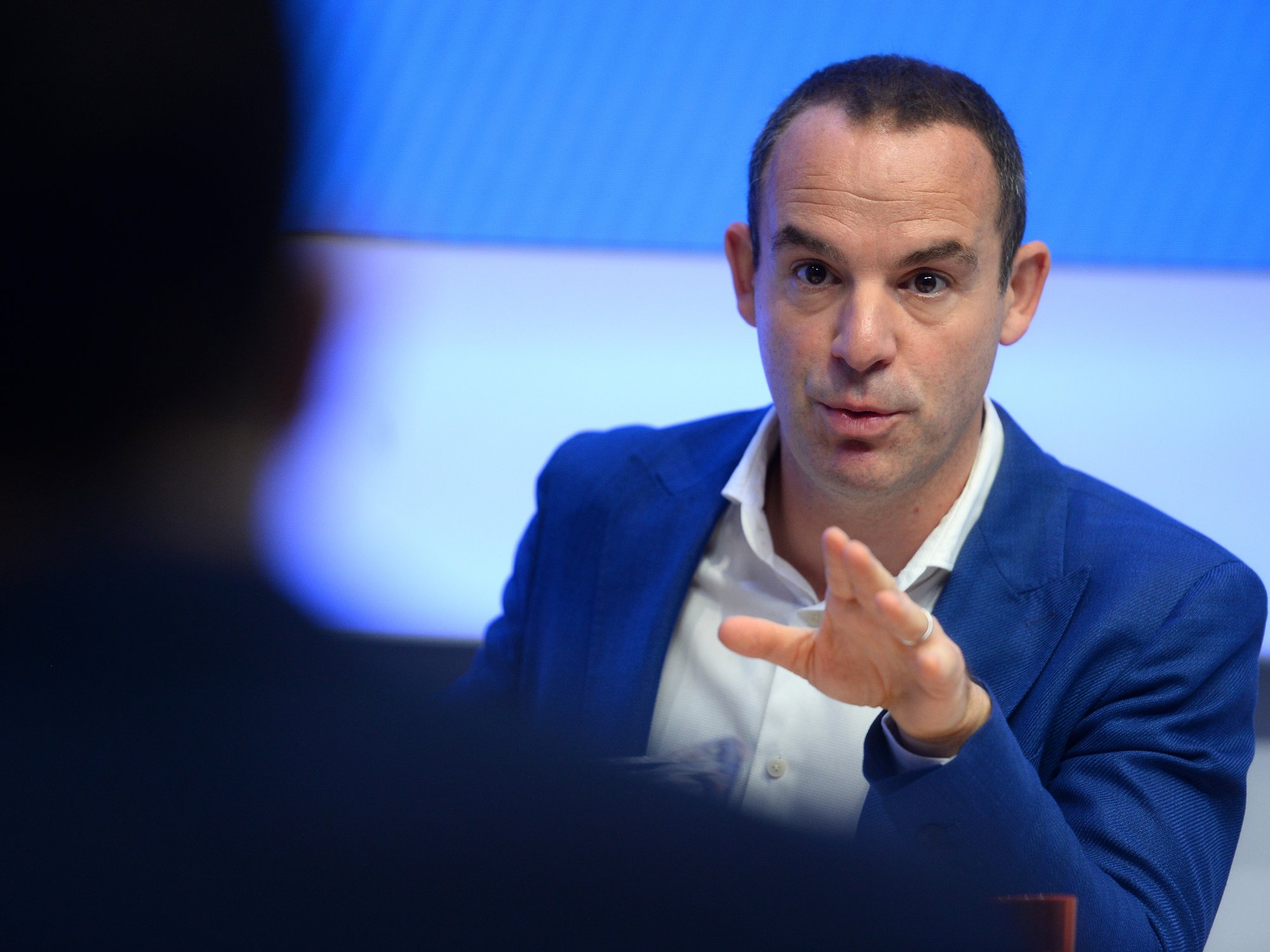Labour say kids need more ‘grit’ - but their ‘solution’ will do more harm than good - Miriam Cates

Education Secretary defends comments that children need to be taught more 'grit' |
GB
OPINION: The government is about to spend millions of pounds of taxpayer money on mental health programmes without any attempt to address or even understand the cause of the problem
Don't Miss
Most Read
Trending on GB News
According to Education Secretary Bridget Philipson, children need to ‘show some grit’. Philipson’s comments accompanied the Government’s announcement that mental health support will be rolled out to a million more children in schools. It certainly seems true that children have become less resilient and more anxious over recent years.
But it is less clear that the Department of Education’s new initiative will make our kids more robust; in fact, evidence suggests that it may make matters worse.
It is widely acknowledged that teen mental health has deteriorated in recent years. When anxiety and depression are self-reported, we should treat the data with caution.
As talking about our ‘mental health’ has become destigmatised, there has been a growing trend to medicalise the ordinary ups and downs of life. There has also been a tendency amongst some people to falsely claim that they have a ‘mental health’ problem in order to claim benefits, jump to the top of an administrative queue or get out of doing something they would rather not do (like going to school or work).
Nevertheless, when it comes to children, objective measures of mental ill health—such as actual hospital admissions for self-harm, suicide attempts and eating disorders—all show a marked uptick over the last fifteen years. School lockdowns during the pandemic certainly poured petrol on the fire of children’s growing unhappiness, but the fire was already burning.
The Government is right to be concerned about the rise in childhood distress. But Ministers are displaying a concerning lack of curiosity about the cause of the problem. Before the general election last year, the Labour Party consistently blamed children’s misery on ‘Tory austerity’, but, perhaps having realised that youth mental health has been declining in parallel in countries across the Western world, they seem to have quietly dropped this excuse.
From Australia to America, Britain to Scandinavia, the metrics of childhood wellbeing follow a remarkably similar pattern. Childhood anxiety, loneliness, eating disorders and even educational attainment began to worsen in 2010, with a steeper decline from 2014.
This trajectory correlates closely with the widespread adoption of the iPhone camera and broadband, and then, from 2014, the increasing use of social media. Ninety-seven per cent of teens now own their own smartphones, and many admit to spending their entire lives online. Social media and gaming apps are addictive by design; they deliver a dopamine hit every few seconds, with the average child receiving 237 notifications a day.
And the ideas and images delivered to our children—violent pornography, incitement to suicide, extreme conspiracy theories—leave them confused, anxious and with a reduced cognitive ability.

Labour is playing whack-a-mole inside our schools - and it could profoundly harm our children - Miriam Cates
|Getty Images
More and more countries across the world are waking up to the consequences of giving tech companies free rein to exploit our kids. The Australian government is introducing legislation to ban social media for under-16s. A growing number of American States are following suit. Finland recently passed a law to ban phones from all Finnish schools. French President Emmanuel Macron is in favour of restricting phones and social media for children.
As an MP in the last Parliament, I campaigned for the age of social media and smartphone use to be raised to 16. When I called for this in the House of Commons, following the suicide of a young girl who had been bullied through social media, Labour MPs laughed. And, for the most part, the Labour Party is still utterly disinterested in defending our children from exploitation by Big Tech, which is a curious position for a party founded on its opposition to capitalist abuse of power.
Technology Secretary Peter Kyle rejected proposals to restrict social media for children, instead—bizarrely—suggesting a 10pm ‘curfew’, as if the internet were subject to a TV-style watershed.
In March, Labour MPs voted against a Conservative proposal to ban phones from schools. On GB News Breakfast on Friday, Philipson told me that phones were already prohibited in schools, despite the findings of a recent report by Policy Exchange suggesting that just 11% of schools have effective bans in place.
The Secretary of State was also unwilling to explore other causes of childhood unhappiness, such as family breakdown, saying that people should ‘do what’s right for them’. Of course, there are hundreds of thousands of single parents doing an admirable job of raising children under very difficult circumstances, but the fact remains that children whose parents separate are statistically more likely to struggle educationally, emotionally and financially. With 2.5 million children now growing up without a father figure, and some of the highest rates of family breakdown in the West, politicians should at the very least be interested in what can be done to strengthen the family.
The government is about to spend millions of pounds of taxpayers' money on school mental health programmes without any attempt to address or even understand the cause of the problem. And there’s no guarantee that the rollout of counsellors and group therapy will result in any improvement at all to our children’s mental health. In fact, the evidence suggests that it may make matters worse.
A Cambridge University study in 2023 found that ‘some aspects of school-based mental health interventions increase distress or clinical symptoms’ and ‘a recent trial assessing mindfulness lessons in secondary schools found that overall there was no change in depressive symptoms in the intervention (or control) group, but that adolescents with elevated levels of mental health symptoms at baseline experienced a small increase in depressive symptoms after the intervention'.
A report by the Department for Education in February this year recommended that ‘Careful consideration should be given to the possible unintended consequences of some mental health programmes in schools’. Of course, children—and adults—presenting with psychiatric problems or mental distress should receive medical help and emotional support. But there is little evidence that school-based talking therapies do anything other than encourage healthy children to label their ordinary human emotions as ‘anxiety and depression.’
A couple of years ago, a primary school teacher told me that a significant proportion of her class of seven and eight-year-olds couldn’t make it through the day without succumbing to various emotional crises. “I don’t understand it,” she told me, “We start off every morning with half an hour writing in our ‘feelings’ journals”. Excessive introspection is not good for children or, indeed, anyone. It is when we turn our thoughts and actions towards other people and the external world that contentment grows.
If the Government is serious about improving children’s mental health, it should take action to protect them from smartphones and social media, and increase support for families through tax and welfare systems and programmes that help to reduce parental conflict.
As a whole society, we should reflect on how we are raising our children; we have failed to protect them sufficiently in the virtual world, but in the real world, we have become far too overprotective. Children need to take physical risks, such as climbing trees and going out on their own. They need to be given independence and responsibility in the real world to make mistakes without parents and teachers worrying that failure or discomfort will cause them long-term harm. Resilience is learned in childhood not by avoiding difficulty but by embracing it through exposure to increasing levels of challenge.
Hovering over our teenagers and jumping in to make sure they hand their homework in on time or don’t get lost in town is not making them happier; it’s robbing them of an essential learning experience.
Yes, our children need more ‘grit’, but this won’t be achieved through group therapy in the classroom. Instead, we need to rescue them from screens, address soaring levels of family breakdown, and give children real-life opportunities to test their confidence.
More From GB News










